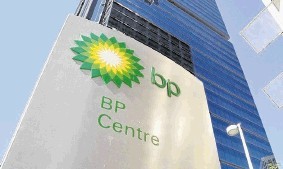
BP and Maersk Drilling have agreed to collaborate on developing conceptual engineering designs for a new breed of advanced technology offshore drilling rig that is expected to “unlock the next frontier of deepwater oil and gas resources”.
The transatlantic agreement is part of BP’s Project 20K, a multi-year initiative to develop next-generation systems and tools for deepwater exploration and production that are beyond the reach of current technology.
The two companies hope to come up with deepwater concepts . . . rigs that can operate in high-pressure and high-temperature reservoirs up to 20,000 pounds per square inch and 177degC (350degF).
A jointly staffed engineering team will be located in Houston, with back-office support from Maersk Drilling’s headquarters in Copenhagen.
Their task is to carry out the engineering studies required to select the optimal design of the 20K drilling rigs, riser and blowout prevention equipment. BP will then determine how best to proceed with construction.
It is anticipated some of the technologies to be developed and deployed on the new rigs will include advanced operating systems to aid the situational awareness of the rig crew and inform decision making; real-time blow-out-preventer monitoring to continuously verify functionality of the BOP; and significantly enhanced mechanical capabilities of the BOP, rig structures and piping systems.
This has echoes of an attempt by a chastened BP to learn lessons from the Macondo disaster that resulted in the loss of the rig Deepwater Horizon, 11 of its personnel and massive pollution.
It also hints at growing concern within the company that the global deepwater resource race is intensifying and new generation rigs are at a premium.
“This agreement marks another important step in taking Project 20K from concept to reality,” said Neil Shaw, BP’s projects COO.
“It also highlights BP’s commitment to seeking out the best partners and minds for a project that will move the entire offshore industry forward.”
BP announced the launch of Project 20K in February last year, setting out its intention to develop technologies over the next decade in four key areas: well design and completions; drilling rigs, riser and blowout prevention equipment; subsea production systems; and well intervention and containment.
The company estimates it could potentially access an additional 10-20billion barrels of resources across its global portfolio over the next two decades with the application of Project 20K technology.
These resources are broadly inaccessible with current equipment, which has a technical limit of 15,000psi pressure and temperatures of 137deg C (250deg F).
In the US Gulf of Mexico, BP expects Project 20K technology will play an important role in developing major deepwater discoveries it has made in recent years, including Kaskida and Tiber.
Those discoveries are found in an emerging play known as the Paleogene, where BP holds a strong lease position. The company also sees potential applications for the technology in Egypt, Azerbaijan and other deepwater basins around the world.
In November, the super-major announced the first two-contract awards for the project. KBR will develop programme execution and management plans for Project 20K, including capital cost and schedule estimates, risk assessments and technical designs.
FMC Technologies will participate in a technology development agreement, in which it will work jointly with BP to design and develop 20,000psi-rated subsea production equipment, including a subsea production tree and a subsea HIPPS (high integrity pressure protection) system.